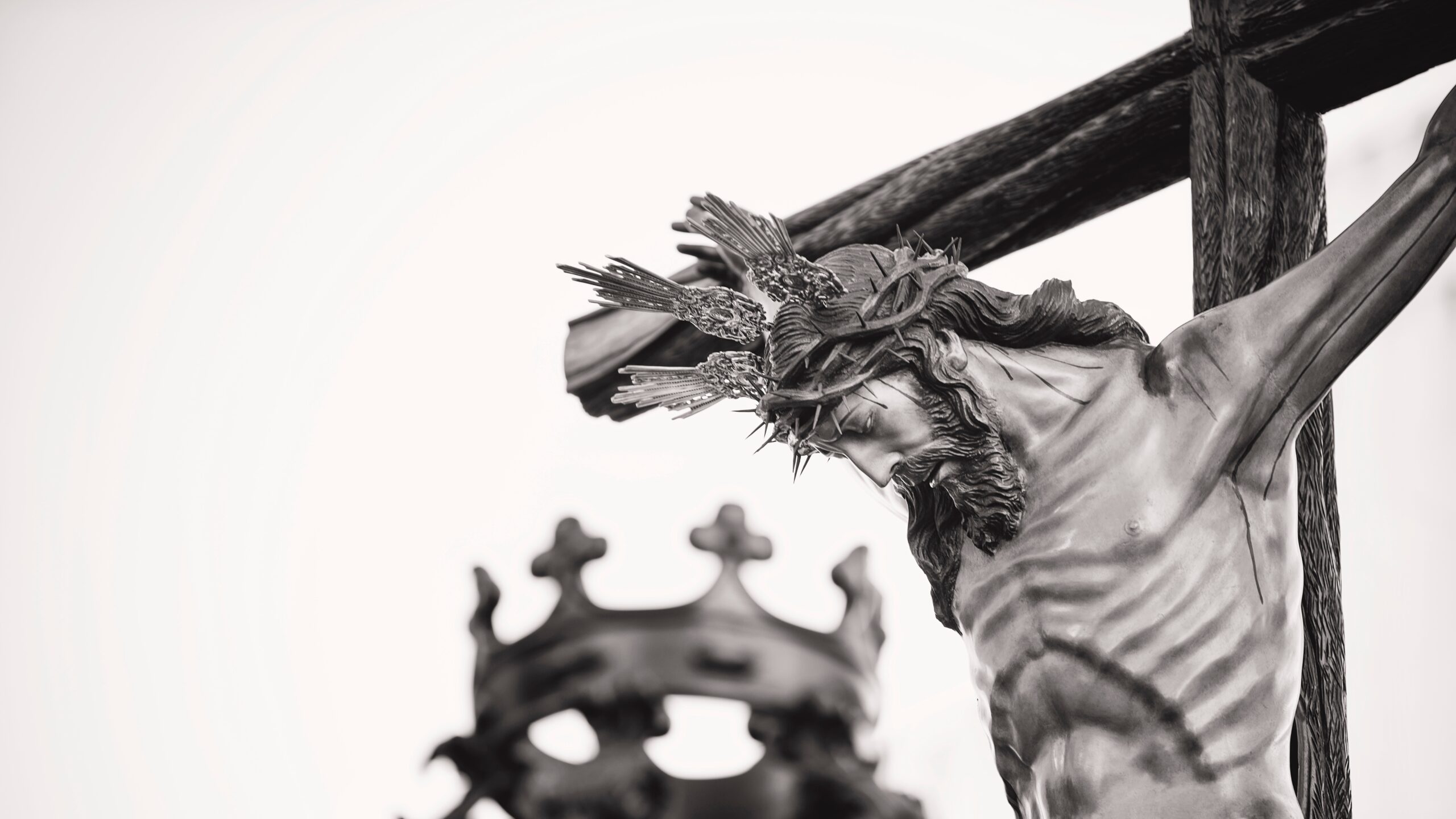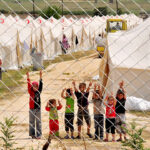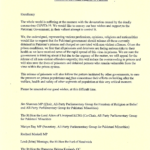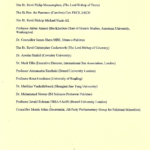A Good Friday Which Is A Day Of Acute Suffering For Many – and even more so for beleaguered communities in far away places. Put yourself in the place of Saleem Masih and his grieving family. He washed his hands in a village well and because he is the “wrong” religion – the “wrong” minority – he was tortured and murdered.
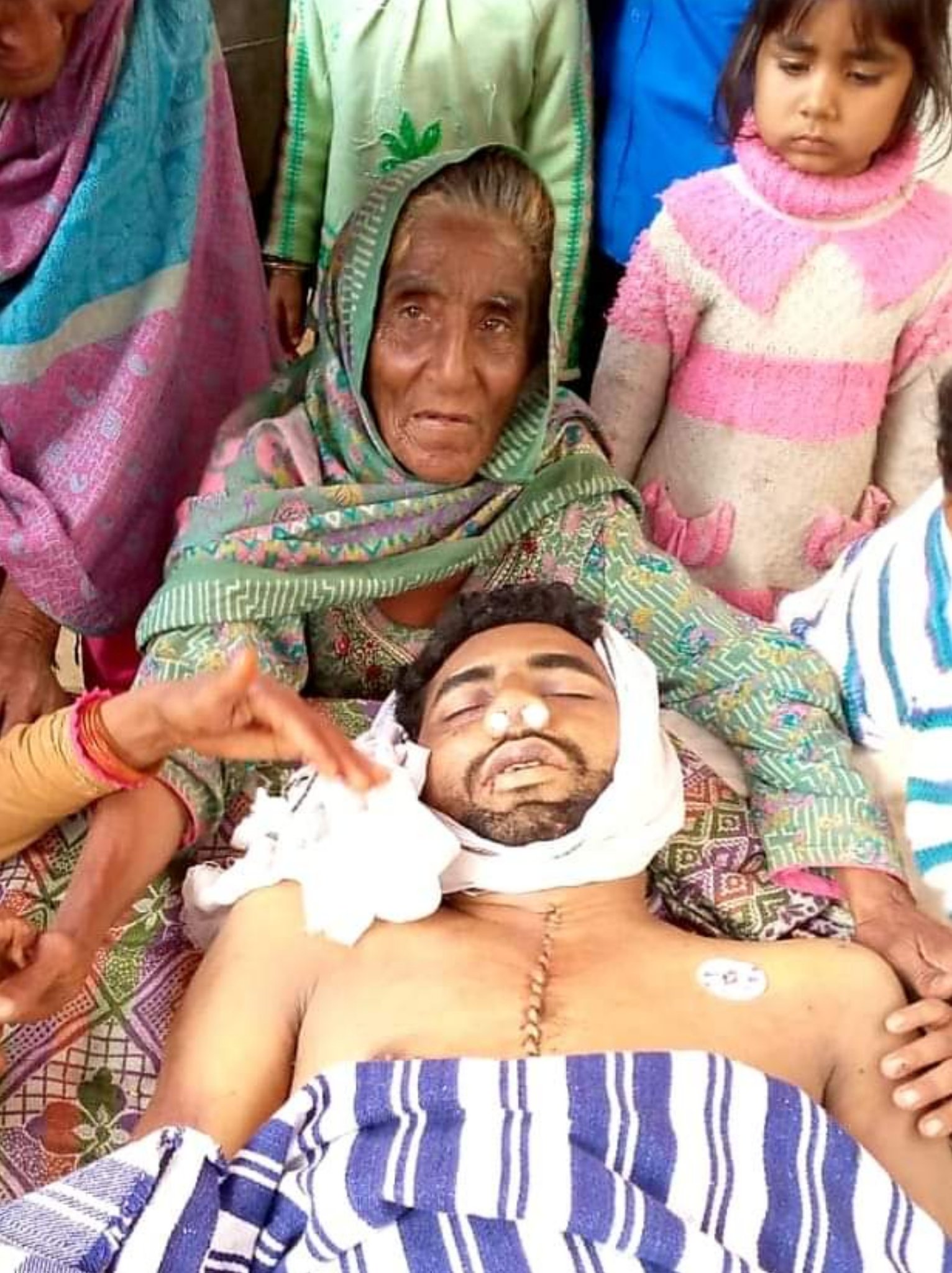
An abridged version of this article appears in the Easter edition of the Catholic Herald and may be read by following this link:
https://catholicherald.co.uk/what-will-happen-to-the-persecuted-and-those-who-have-fled-from-danger/
- Syrian refugee children
Hidden in the relentless tsunami of news reports about Covid19 are occasional references to beleaguered communities in far-away places; people with no recourse to the British National Health Service; to hand washing; to personal sanitisers; to self- isolation.
In this horrible pandemic I worry for a son who is an A&E doctor working on the NHS front line; am anxious about isolated friends; fear for disabled and vulnerable people; horrified by accounts from friends in Italy, Spain, and New York; and deeply shocked as workmen assemble make-shift morgues in English cities and provide cold storage for corpses while churches are locked up and .
But how much worse must it be if, even before the arrival of Covid19, you are part of a persecuted and despised minority living on the margins of society?
I’ve heard from Christian friends in Pakistan – many of whom are forced to live in apartheid-style caste-based shanty towns called “colonies” which I have visited: dirt floors, little clean water, no electricity, filthy latrines, people living on top of one another.
Disfiguring prejudice and social and religious discrimination create a toxic cocktail. Throw in Coronavirus and it is catastrophic.
Cleaning latrines and cleaning streets are among the menial jobs reserved for Christians by Pakistan’s Provincial Governments. 80-90% of sanitation workers are Christians. They are not even issued with clothing or gloves.
A high ranking official recently told me that it was a sign of their “respect” for Christians that they are allowed to clean the homes of the majority.
Consider, too, the 25 Christian prisoners languishing in Pakistan’s fetid, malodorous jails – 6 of whom are awaiting execution for their alleged crime of blasphemy.
Spare a special thought for Shagufta Kauser and her disabled husband, Shafqat Emmanuel.
Sentenced to death in 2014 for allegedly sending blasphemous text messages in English – a language which neither of them can speak – on phones they did not own.
Both will be at great risk from the Coronavirus. With others, I have written to Imran Khan asking for clemency. Even Iran has emptied its prisons.
Instead of which, Pakistanis are now being told to wash their hands. One man who tried to follow Khan’s advice to do just that was a 22-year-old farm labourer, a Christian, Saleem Masih.

He died at the end of February having been tortured by a cattle farm owner for washing in water from the Muslim’s well in Punjab’s Baguyana. Saleem was accused of polluting the well, so they tortured him with heated iron rods and killed him.
Yes, we are all grappling with grief but imagine that you were Saleem’s mother or father or the parent of Huma Younus, a 14-year-old Pakistani Catholic girl, who has reportedly been kidnapped, raped, forced to marry, and to convert.
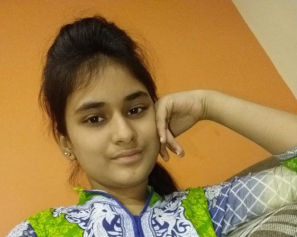
Persecution is one of the most potent factors in creating refugees and displacement.
I have visited holding centres in South East Asia where Pakistani Christians and Ahmadis are caged like wild animals – and think too about the plight of Muslim Rohingya and Uighurs.
Globally, more than 70 million people have been forced by persecution, conflict, violence, and human rights violations to flee their homes
At the Bardarash refugee camp, which I visited in northern Iraq a few weeks ago, people had fled Turkish aerial bombardment.
These camps – overcrowded, with lack of sanitation, limited healthcare or vaccination programmes – are a perfect environment in which Coronavirus can flourish. ven in less challenging times, refugees are out of sight and out of mind: not included in planning for pandemics or natural disasters.
Living under canvas and cooking on open fires in Bardarash, refugees’ health was already compromised as they queued up for rations, handouts, and medical help.
Gladly, they would have swopped places with British shoppers, cross that supermarkets are limiting them to only two or three items of particular products.
This week I pleaded with our hard-pressed Government to urge the Ethiopian Government not to close the hard-to-reach Hitsats refugee camp in Tigray – where 18,000 Eritreans have fled religious and political persecution. What would happen to the refugees – half of whom are children -doesn’t bear thinking about.
In countries like Iraq and Syria – where already overstretched public health systems are weak or have been broken by endless conflict and the ensuing chaos – in dismal refugee camps and along porous borders, what chance have the authorities got of halting the transmission of Covid19?
A shocking situation becomes catastrophic when religious or secular leaders inflame hatred against despised, stigmatised, fleeing refugees.
Countries like Turkey whip up hatred of minorities with little or no sympathy for Christians fleeing from Iran and Afghanistan. Excluded from any support mechanisms, Covid19 lockdown denies them jobs, income and food for their families.
No Business Interruption Scheme or Job Retention Scheme for them.
And under the cover of Coronavirus, Militant Islamist radicals add to the number of refugees.
Boko Haram continue their depredations in Nigeria; ISIS regroup in Northern Iraq; Hamas terrorises the few remaining Christians in Gaza; and Somalia’s Al Shabaab drives Christians out of Northern Kenya.
How easily we forget how, five years ago, on the eve of Good Friday, 143 students were killed at Kenya’s Garissa University, singled out and executed for their Christian beliefs.
Recall, too, how in Nigeria, 11 Christians were executed on Christmas Day 2019; how the Christian schoolgirl, 16-year-old Leah Sharibu – whose mother, Rebecca, I met last month at Westminster – remains abducted, having been raped and forcibly converted. Boko Haram openly boasted online that they “captured all those girls and will sell all of them. I have a market where I sell human beings because it is Allah who says I should sell human beings. Yes, I will sell women.”
Meanwhile, the atheistic Communist regimes in China and North Korea, incarcerate, persecute, torture, and subvert the Church.
In, without a murmur of protest from the Vatican, at Christmas they imprisoned Pastor Wang Yi, who said “ This country is launching a war against the soul”.
Hong Kong’s Cardinal Zen has courageously said in a letter to the world’s 223 Cardinals the Catholic Church in China is being “murdered” while the Vatican stands idly by.
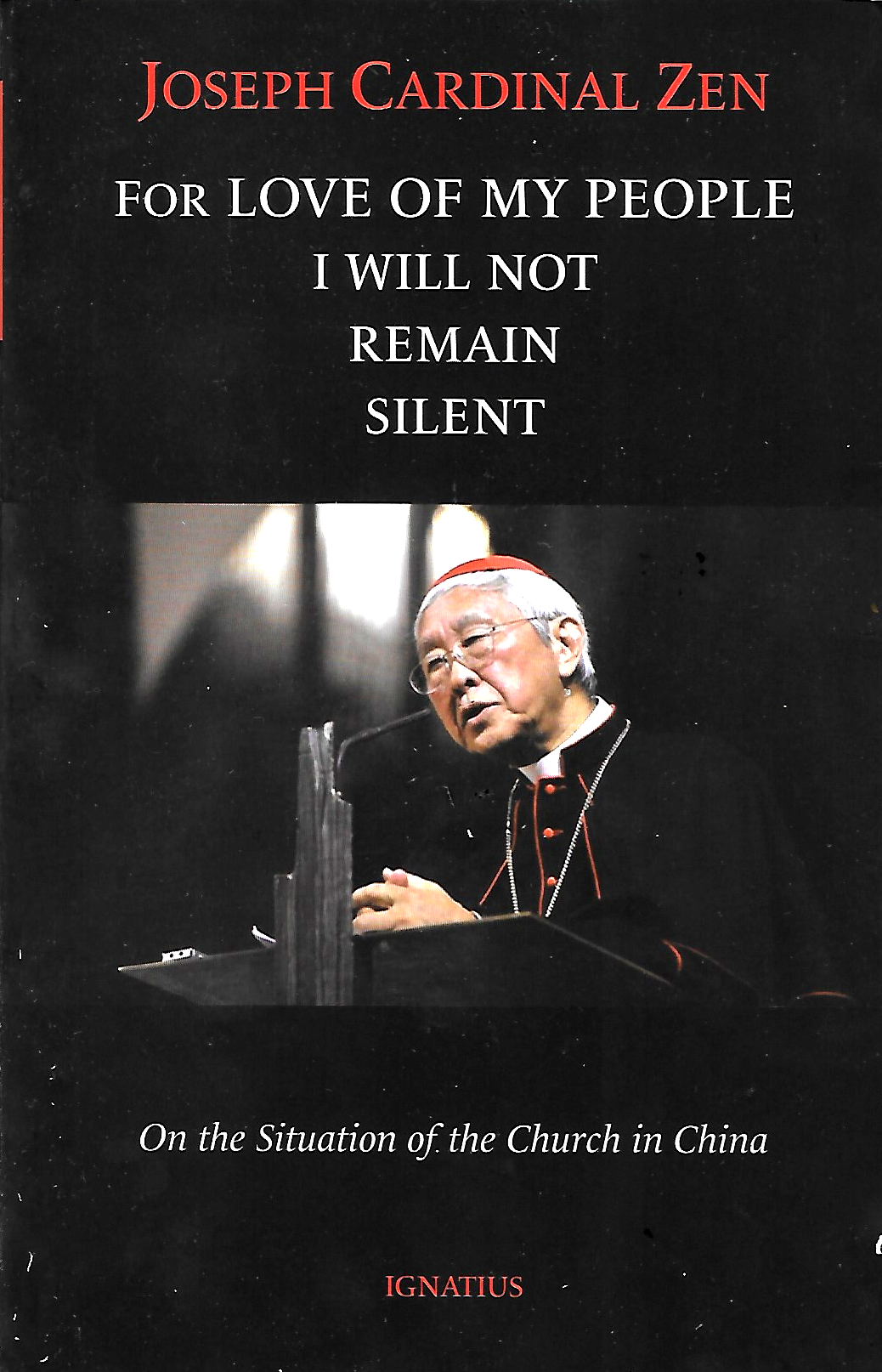
Churches have been demolished, crosses removed, quotes from President XI replace the Ten Commandments, non-compliant Christians disappear – last December one priest was jailed for seven years after saying that the Chinese Communist Party is “morally incompatible with the Christian faith.
And under the cover of darkness the Coronavirus gives this regime the perfect opportunity to impose even greater surveillance.
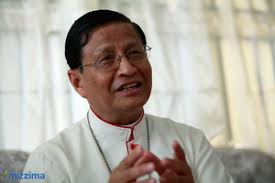
As Burma’s Cardinal Charles Bo puts it:
Chinese Communist Party “lies and propaganda have put millions of lives around the world in danger”; that, instead of profiting from the pandemic, they need to fund relief and restitution; and he bravely highlighted the systematic violation of human rights.
The Cardinal, who is President of the Asian Bishops Conference, says “this regime is responsible, through its criminal negligence and repression, for the pandemic sweeping through our streets today …For the sake of our common humanity, we must not be afraid to hold this regime to account.”
Cardinal Bo’s own country is especially vulnerable to Coronavirus.
Burma borders China and hundreds of thousands are displaced by conflict. He says, “The healthcare systems in the most advanced countries in the world are overwhelmed, so imagine the dangers in a poor and conflict-ridden country like Myanmar.”
So, what can we do?
There are organisations – like the Arise Foundation, Aid to the Church in Need and CSW – working in the field – trying to make a difference.
Notwithstanding the considerable risks, the Arise Foundation, of which I am a Trustee, continues to work with religious sisters in some of these desperate situations.
From the slums around Delhi, Bangalore, and Manila and among some of the Roma communities in Albania, where the virus poses profound risks, Arise is adapting, finding new ways of serving their communities in this crisis.
They are establishing food banks, discovering safe ways of delivering essentials to at-risk communities, providing health assessments, conducting critical awareness raising work about the virus, among so many other vital interventions.
Arise’s India Coordinator, Sister Arpan Carvalho, put it starkly:
“The help given to the poorest of the poor is, in some places, being withdrawn for their own safety. The devastation the coronavirus could cause in such circumstances doesn’t bear thinking about, and the desperation in those communities will lead to more people being exploited. We are finding new ways of helping them”.
Many of us will, to some extent, have been personally made vulnerable by this virus – and already know people who have fallen ill or died. But very few of us will face the heightened risk of persecution, becoming refugees or being trafficked or exploited as a result of the pandemic.
In this new world of hand washing and epidemic awareness, in a week in which we will hear once more the old story about the consequences of a man who held high public office, literally washing his hands of his responsibility, we need to ask some sharp questions about the Coronavirus pandemic and its consequences – and reach out to those who continue to make their lives and deaths bearable.

Also see this Statement on the COVID-19 Implications for Migrant Workers by Kevin Hyland, former UK Anti Slavery Commissioner:
Abridged Version from the Easter Edition of the Catholic Herald
https://catholicherald.co.uk/what-will-happen-to-the-persecuted-and-those-who-have-fled-from-danger/
What will happen to the persecuted – and those who have fled from danger?
In responding to coronavirus, even the most developed societies have been stretched to the limits. How much worse it is for persecuted and despised minorities, living on the margins of society.
Friends in Pakistan describe how the pandemic is piling hardship upon hardship. Their lives are difficult enough already: many are forced to live in apartheid-style caste-based shanty towns called “colonies”, with dirt floors, little clean water, no electricity, filthy latrines, and people living on top of one another.
Pakistan’s Christians also face discrimination – the authorities reserve menial jobs for them, such as cleaning latrines. (A high-ranking official recently told me, with no hint of irony, that it was a sign of “respect” for Christians to allow them to clean the latrines of the majority.)
Throw in coronavirus, and the situation becomes catastrophic. Sanitation workers, 80-90 per cent of whom are Christians, are never routinely issued with clothing or gloves – let alone personal protective equipment (PPE).
Meanwhile, Christian prisoners languishing in Pakistan’s fetid, malodorous jails – often, like Asia Bibi, there because of trumped-up accusations of blasphemy. What will happen if they are not released?
Persecution, in Pakistan and elsewhere, has helped bring about the global displacement of 70 million people. Even in less challenging times, refugees are out of sight and out of mind, and governments forget them when planning for pandemics or natural disasters.
In countries with overstretched, broken, weak public health systems, and dismal refugee camps and porous borders, the authorities have little chance of halting the transmission of Covid-19.
Refugee camps are a perfect breeding ground for Coronavirus – overcrowded, with lack of sanitation, limited healthcare or vaccination programmes.
At the hard-to-reach Hitsats refugee camp in Tigray, Ethiopia, there are 18,000 Eritreans – half of them children – who have fled religious and political persecution.
This week I pleaded with our hard-pressed Foreign Office ministers to urge the Ethiopian Government not to close the camp.
Will the world look the other way if the refugees are repatriated to Eritrea, whose Marxist dictator, Isaias Afwerki, trained by Beijing in ideology and military oppression, last year closed the country’s 22 Catholic healthcare centres?
A few weeks ago I visited the Bardarash refugee camp in northern Iraq. People had fled to escape Turkish aerial bombardment.
Living under canvas and cooking on open fires in Bardarash, refugees’ health was already compromised as they queued up for rations, handouts, and medical help.
Meanwhile, Christians fleeing from Iran and Afghanistan to Turkey are greeted with hatred, excluded from any support mechanisms, denied jobs, income and food for their families. No Business Interruption Scheme or Job Retention Scheme for them.
Under the cover of Coronavirus, Militant Islamist radicals add daily to their number.
In Nigeria, Boko Haram continues its depredations; ISIS regroups in Northern Iraq; Hamas terrorises the few remaining Christians in Gaza; and Somalia’s Al-Shabaab drives Christians out of Northern Kenya.
Meanwhile, the atheistic Communist regimes in China and North Korea, incarcerate, persecute, torture, and subvert the Church.
At Christmas, without a murmur of protest from the Vatican, China imprisoned Pastor Wang Yi, who memorably said that “This country is launching a war against the soul.”
Recently, Hong Kong’s Cardinal Zen courageously wrote to the world’s 223 Cardinals, stating that the Church in China is being “murdered” while the Vatican stands idly by.
Under the cover of darkness, China’s regime has imposed even greater surveillance and control of its people, systematically violating their human rights.
At least the world is being forced to reappraise Chinese Communism – all the more so as details emerge of Beijing’s irresponsibility and secrecy over the coronavirus outbreak.
Burma’s Cardinal Charles Bo has rightly insisted that the Chinese Communist Party’s “lies and propaganda have put millions of lives around the world in danger”, that, instead of profiting from the pandemic, China should fund relief and restitution: “For the sake of our common humanity, we must not be afraid to hold this regime to account.”
Yet there are signs of hope.
In moments of acute need you can always rely on charities like Aid to the Church in Need and Christian Solidarity Worldwide to step up to the plate.
Heroic efforts are also being made by the Arise Foundation which, in spite of the considerable risks, continues to work with religious sisters in some of these desperate situations.
They are establishing food banks, discovering safe ways of delivering essentials to at-risk communities and providing health assessments.
Many of us will already know people who have fallen ill or died.
But very few of us will face the heightened risk of persecution, becoming refugees or being trafficked or exploited as a result of the pandemic.
In this new world of hand-washing and social distancing, and in a week in which we have heard once more the old story about the consequences of a man who held high public office washing his hands of his responsibility, we need to ask some sharp questions about the Coronavirus pandemic and its consequences for the most vulnerable – and to reach out to those who continue to make their lives and deaths bearable.

